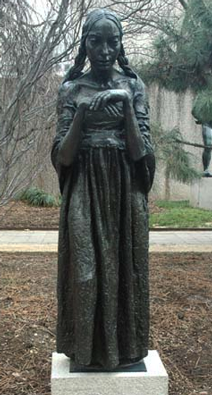Sarah Slean is a terrific singing talent. Maybe a good songwriter too. But.
On the CBC, late at night, May 20th 2011, Sarah was being interviewed as part of a songwriter series on CBC, on Apropos. She told a story about a song she had written. She was living in Paris for whatever reason. Every day, she walked past a little café. And every day she saw a middle aged man sitting there drinking by himself. She said the man looked like he had given up on life. “He pierced me,” she said. She was so moved by his plight that one day she just decided out of the blue to write him a letter. She wrote in the letter that he should “start again”. No matter what you have done in the past, let it go, and start again: the universe loves you.
The next day, when she brought the letter to the café, he was gone. The next day as well. And the next. She gave up on the idea, though she left the letter in her bag. She wondered if he was lying dead in an apartment somewhere, un-noticed and unremembered.
Up until this point, I thought it was a fairly interesting, compelling story. I was all ears, as I drove back from a wedding in St. Catharine’s. I wondered if she would end up buying a beer and sitting down and joining him, to show that there was hope, at least, of friendship in the world. That she would show a little interest in him, ask about his life, his family.
She continued her story. A little later, she walked by again, and there he was! Her heart beating wildly, she walked right up to him and handed him the letter and then walked on. She did not stay to talk.
She was very pleased with herself.
Then I realized that she was less interested in this man who “pierced” her than she was in herself being pierced. And then she wrote a song which she freely admits is really about her. The song is not about him, or whatever interesting thing happened to him, or whatever interesting things he would do in the future, or why he was unable to connect with anyone, or why he had given up. It was all about this courageous young girl who summoned the audaciousness to actually have an amazing insight into her own insight.
And the very definition, to me, of a diva.
The CBC has a soft spot for divas. Many afternoons, on my way home from work, they will play the latest recording by someone who seems endlessly fascinated with her own voice. It’s a kind of showiness that is all about theatricality and ostentation and effects for the sake of calling attention to one’s self, and really quite boring.

